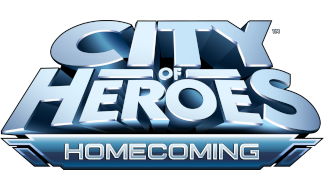The Beta Account Center is temporarily unavailable
×
Double XP is active on all shards until October 21st
-
Posts
825 -
Joined
-
Days Won
1
Content Type
Profiles
Forums
Events
Store
Articles
Patch Notes
Everything posted by TheOtherTed
-

The Banished Batgirl Mystery
TheOtherTed replied to ThaOGDreamWeaver's topic in Comic, Hero & Villain Culture
Today I learned that the quote about their true purpose did not, in fact, come from Terry Pratchett. -

Star Trek Online uniform and vanity shield
TheOtherTed replied to Fortuneteller's topic in Video Games
I pop in now and again for a nostalgia trip (I played the h**k out of it when it was first released). Granted, those trips don't last long, but the tug is still there. I have approximately zero interest in fancy new ships, though. -
Now that the formalities are out of the way, welcome to the CoH forums! And if you're new to the game (or even if you're not), welcome to that too. If you have any questions, the General Discussion section is the best place to start.
-

D&D Honor Among Thieves
TheOtherTed replied to InvaderStych's topic in Comic, Hero & Villain Culture
I kind of see this the same way I saw "Dogma" or "Ocean's Eleven" when they first came out - i.e., another "make-work" film. Brainstorm a random idea with some "currently available" and more-or-less trending celebrities (not necessarily actors), pitch to everyone who'll listen, drum up some funding, and go to town with it. Though truth be told, I have no idea if that's how "Dogma" or "Ocean's Eleven" happened. They probably didn't. But while those films clearly did well, I can't help feel a certain degree of cynicism about the "Hey, look who we signed on!" vibe to it. That said, if Jay and Silent Bob show up, I'm in. -
I get that. For me, one big early turn-off was all the red everything all over everything theme that Angmar had going on. And to be honest, I never had a character get much farther than Rivendell - partly because I kind of felt "done" by that time, and partly because I had more fun farming (like, literally planting and growing crops) than anything else.
-
I surprised myself by belting out this random bit of schmalz while driving home today (and I surprised myself even more by knowing a good chunk of the lyrics), so I figured I'd share. The original, that is. Not my, uh, "rendition." Please accept my apologies if you wanted that instead. Climax - "Precious and Few"
-
The unholy strategy game trifecta. Throw in Masters of Magic to make it an unholy strategy game four-fecta. Though to be honest, Colonization wasn't at the top of my list back then (like, way back then) and it fell completely off my radar, but I think this wiser, more meditative, and pudgier version of me might like it a lot... Still finding tons of replay value in Skyrim, Fallout 4, and Mount & Blade: Warband, but I will confess I only play F4 for the settlement game. I'm starting to resent the, you know, actual story missions. I'll sign up for the LOTRO day-tripper list. I can never really stay in it for long, but can't quite let it go, either.
-

What's your favorite content and why?
TheOtherTed replied to Bionic_Flea's topic in General Discussion
The Darrin Wade arc, just for the badge. Hands-down the coolest badge title I've seen so far. (IMO and other appropriate disclaimers) -
I don't know about "best," but my favorite is the police scanner mission "Rescue Dr. Stephen Fayte." I'm not a complicated man.
-

RIP Nichelle Nichols aka Uhura
TheOtherTed replied to The_Warpact's topic in Comic, Hero & Villain Culture
Naked Time! That was it. When I heard the news, that was the first thing I thought of, but I couldn't remember where it came from. Thanks for that. Will be binge-watching the original series in honor of her memory. -
Are you talking specifically about melee combat specifically? The reason I ask is because my ranged characters have been "peeling spawn onions" since I've had ranged characters the way @Six-Six and @srmalloy described. For melee characters, though, a big part of the fun for me is mixing it up without hesitation. It's rare that I try to pull, and doing so would seem counter-productive for Brutes. That said, a full-on re-stealth mechanic (as opposed to a single-target Placate) could be a neat gimmick.
-

Amazon's Middle Earth series
TheOtherTed replied to Techwright's topic in Comic, Hero & Villain Culture
Disclaimer - I've put battlewriath on ignore so that I won't be tempted to wrangle with his whole "If you accept the changes Jackson made to LotR, you should be ok with any adaptation" argument. @Techwright, the biggest lore change looks like it's going to be the timeline itself. The show-runners want to touch on the rise of Sauron, the forging of the Rings, Sauron's war against the Elves of Eregion, the rise and fall of Numenor, and the Last Alliance's victory over Sauron. "By the book," that spans about 2441 years, but the show-runners stated early on that they want to cover those events in a much shorter period of time. The reason - they don't want to deal with discarding human characters every season or so. Thus, though Celebrimbor was slain 1400 years before Elendil was born, it seems that the two might have a chance to meet in Amazon's brave new world. Other minor lore changes - hobbits (er, "Harfoots") in The Shire millenia before there was a The Shire; Galadriel gunning specifically for Sauron for unknown reasons; an evil Elf named Adar who may be a lieutenant or rival of Sauron; and a "forbidden love" between a human woman (Bronwyn) and an elf man (Arondir) that can't actually go anywhere lore-wise. I've probably missed a few things. There's a lot of stuff being thrown around. Also, beware of speculation. I tried to track down the rumor that Celeborn is dead, but every lead I follow seems to point back to one youtuber whom I frankly can't trust. -
Some people like badges as much as you don't. Granted, the "Troll Task Force Member" badge is kind of meh, but the "Transcendent" badge is great for spookier characters. People also like story, and there's a not-absolutely-terrible story behind the disappearance of Wincott's son. I mean, it's kind of terrible, but that's just my opinion.
-
Some people have reasons to stay in The Hollows. In fact, since we're no longer automatically sent there, I'd assume that anyone who is in The Hollows wants to be there. Some might be chasing the "Transcendent" badge, others might be seeking a nostalgia rush, and others might actually like The Hollows for its setting and story. Zipping off to Steel to pick up an unrelated arc would lose the "Hollowers" in your group, and others may bail just because it looks like the team is breaking up anyway.
-
*looks up startled* *shrugs* *continues a-heathening*
-
Thanks for the correction, but, again, DOs are irrelevant in the current game. Maybe the devs had a similar idea back when DOs were relevant, but it seems that's as far as they went. I'd like to see the spectrum/loop idea carried out further, but, as I said, I don't have any idea how to do that, and I also recognize that it may be a crappy idea to begin with.
-
I mean conceptually. "Magic" and "Natural" seem like near-opposites to me. Plus, we have DOs for every pair of origins, so that doesn't mean much for the "spectrum" or "loop" idea. Not to mention that DOs have become pretty much irrelevant at this point.
-
Much as I enjoyed my time in CO, their implementation of the Nemesis system has to rank a far distant second at best... But back on topic, the only idea I can think of, that couldn't be gamed or min-maxed to death is to have Origin-specific arcs or TFs that can only be started by someone of the same origin. So, for example, only a Mutation-based character could start a Mutation-specific arc, but he/she/it could form a team and invite characters of other origins to help. Of course, this could still be gamed if origin-specific characters demand inf from team members, but that might be undercut by Tyrannical's origin tips idea. Still, it would need a lot of work and decent writing. And badges to get people motivated to do it. Maybe not such a good idea. I'll also throw this out there because I think it's relevant but I don't know what to do with it. I've always seen the origins as a sort of spectrum, where each origin is adjacent to one other origin. For example, Natural-Tech-Science-Mutation-Magic. Not the only spectrum possible of course, and it kills me that I can't find a way to "close the loop," but maybe this will jog someone with a better brain than mine.
-
Anyone but Nemesis for mayor!
-
Holy Birdman, Batman!
-
Sweet Mother of Dog...
-
I don't know what the worst thing one could do is, but the worst player behavior I encountered involved team leaders who didn't lead. Some notable cases: The team was badging werewolves on Striga, and without a word the leader (a tanker) bounded away and zoned as soon as he hit his quota. I was sidekicked to him, and got slaughtered before I realized what had happened. The leader (another tanker... hrmmm...) wouldn't wait for the rest of the team to rest and regroup (the leader had just recruited a couple of replacements). He got himself (and the one scrapper who followed him) killed by who knows how many council. He chided me, playing a kin defender, for the lack of heals, and, well, I let him know what I thought of him and quit. Something similar happened with a blaster leader, so I guess I can't blame tanks entirely. The team was steamrolling a CoT cave, when I suddenly realized our fearless leader wasn't with us. Turns out he was door-sitting. He responded to our queries with "coming," but didn't move an inch. The third time this happened, we decided in local to bail and form our own team.
-
*cries a little*





